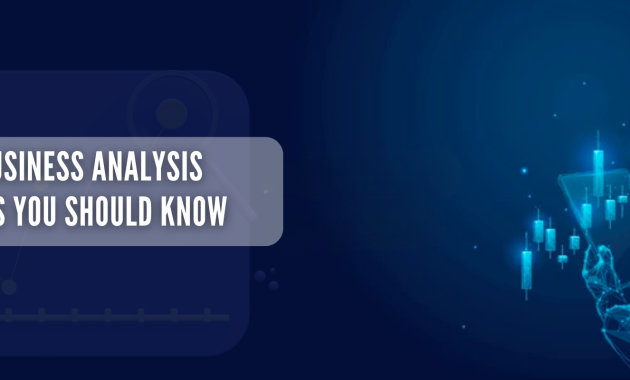
Unlocking Profit: The 15 Best Business Intelligence Tools to Maximize ROI
In today’s data-driven landscape, businesses are drowning in information. The challenge isn’t a lack of data; it’s the ability to extract meaningful insights. This is where Business Intelligence (BI) tools come into play. They transform raw data into actionable intelligence, enabling organizations to make informed decisions and ultimately, maximize their Return on Investment (ROI). This article delves into the 15 best business intelligence tools currently available, providing a comprehensive overview to help you choose the right solution for your needs. We will explore their features, benefits, and ideal use cases.
The core function of any business intelligence tool is to gather, analyze, and visualize data. This allows businesses to understand trends, identify opportunities, and mitigate risks. The right BI tool can significantly improve decision-making processes, leading to increased efficiency, reduced costs, and higher profitability. Choosing the appropriate tool depends on various factors, including your company’s size, industry, technical expertise, and specific business goals. We will cover a range of tools, from those suited for small businesses to enterprise-level solutions.
Understanding the Power of Business Intelligence
Before diving into specific tools, it’s crucial to understand the power of business intelligence. BI isn’t just about pretty charts and graphs. It’s about empowering your team to make data-backed decisions. It’s about transforming raw data into valuable insights. Effective BI implementation can lead to:
- Improved Decision-Making: Data-driven insights lead to more informed decisions.
- Increased Efficiency: Automation and streamlined reporting save time and resources.
- Cost Reduction: Identifying and eliminating inefficiencies can significantly lower costs.
- Enhanced Customer Experience: Understanding customer behavior allows for personalized experiences.
- Competitive Advantage: Data insights provide a strategic edge in the market.
Investing in the right business intelligence solution is an investment in your company’s future. It’s about equipping your team with the tools they need to succeed in a competitive market. The tools discussed below represent some of the best options available, each offering unique strengths and catering to different needs.
Top-Tier Business Intelligence Tools: A Detailed Look
1. Microsoft Power BI
Microsoft Power BI is a leading business intelligence platform, known for its user-friendly interface and powerful features. It integrates seamlessly with other Microsoft products, making it an excellent choice for organizations already invested in the Microsoft ecosystem. Power BI offers a wide range of data connectors, allowing you to pull data from various sources. Its interactive dashboards and reports enable users to visualize data effectively and gain valuable insights. Power BI’s scalability makes it suitable for businesses of all sizes.
2. Tableau
Tableau is another industry leader, renowned for its data visualization capabilities. Its drag-and-drop interface makes it easy for users to create compelling dashboards and reports. Tableau excels at handling large datasets and offers a wide array of visualization options. Its robust features and user-friendly design make it a popular choice among business intelligence professionals and business users alike. Tableau’s focus on data visualization makes it ideal for quickly identifying trends and patterns.
3. Qlik Sense
Qlik Sense is a self-service business intelligence platform that emphasizes data discovery and exploration. It uses an associative data model, allowing users to explore data relationships intuitively. Qlik Sense offers advanced analytics capabilities, including machine learning integration. Its focus on user empowerment makes it an excellent choice for organizations seeking to democratize data access. Qlik Sense allows users to easily uncover hidden insights within their data.
4. Sisense
Sisense is a business intelligence platform designed for complex data analysis and integration. It offers powerful data processing capabilities and can handle large datasets with ease. Sisense provides a single platform for the entire BI process, from data preparation to visualization. Its focus on scalability and performance makes it suitable for organizations with demanding data needs. Sisense can transform complex data into actionable insights.
5. ThoughtSpot
ThoughtSpot is a search-driven business intelligence platform that allows users to ask questions about their data in natural language. Its intuitive search interface makes it easy for anyone to explore data and generate insights. ThoughtSpot utilizes AI-powered analytics to provide automated insights and recommendations. Its ease of use and powerful search capabilities make it an excellent choice for organizations looking to empower all users with data access.
6. Domo
Domo is a cloud-based business intelligence platform that provides a centralized view of all your data. It offers a wide range of data connectors and integrates with various business applications. Domo’s real-time dashboards and alerts allow users to stay informed about key performance indicators (KPIs). Its collaborative features make it easy for teams to share insights and collaborate on data-driven projects. Domo is designed for accessibility and ease of use.
7. Looker (Google Cloud)
Looker, now part of Google Cloud, is a business intelligence and data analytics platform that focuses on data modeling and governance. It allows organizations to define a single source of truth for their data. Looker’s data modeling capabilities ensure data consistency and accuracy. Its collaborative features and robust security make it suitable for organizations with complex data governance needs. Looker offers a comprehensive approach to data analytics.
8. SAP Analytics Cloud
SAP Analytics Cloud is a cloud-based business intelligence and planning solution. It integrates seamlessly with other SAP products and offers advanced analytics capabilities. SAP Analytics Cloud allows users to create interactive dashboards, reports, and planning models. Its focus on financial planning and analysis makes it a valuable tool for finance teams. SAP Analytics Cloud is designed for enterprise-level organizations.
9. MicroStrategy
MicroStrategy is an enterprise-grade business intelligence platform known for its scalability and performance. It offers a wide range of features, including data visualization, advanced analytics, and mobile BI. MicroStrategy’s robust security features and data governance capabilities make it a suitable choice for organizations with strict compliance requirements. MicroStrategy is designed for complex data environments.
10. Yellowfin
Yellowfin is a business intelligence platform that focuses on automated insights and data storytelling. It uses machine learning to identify trends and patterns in data. Yellowfin’s data storytelling features make it easy for users to communicate insights effectively. Its ease of use and automated insights capabilities make it an excellent choice for organizations looking to simplify data analysis. Yellowfin excels at making data understandable.
11. SAS Business Intelligence
SAS business intelligence is a comprehensive suite of analytics tools. It offers advanced analytics capabilities, including statistical modeling and machine learning. SAS is a powerful tool for organizations that need to perform complex data analysis. Its robust features and data governance capabilities make it suitable for organizations with strict compliance requirements. SAS provides advanced analytics solutions.
12. Board
Board is a business intelligence and performance management platform. It combines BI, planning, and forecasting in a single platform. Board’s integrated approach allows for seamless data analysis and planning. Its user-friendly interface and collaborative features make it an excellent choice for organizations looking to streamline their planning processes. Board offers a unified platform for data and planning.
13. IBM Cognos Analytics
IBM Cognos Analytics is a comprehensive business intelligence platform that offers a wide range of features. It includes data visualization, reporting, and advanced analytics capabilities. IBM Cognos Analytics’s robust features and scalability make it suitable for large enterprises. Its focus on data governance and security makes it a reliable choice for organizations with strict compliance requirements. IBM Cognos Analytics provides a complete BI solution.
14. Dundas BI
Dundas BI is a business intelligence platform that focuses on data visualization and interactive dashboards. It offers a wide range of customization options, allowing users to create visually appealing reports. Dundas BI’s user-friendly interface and powerful visualization capabilities make it an excellent choice for organizations looking to create engaging dashboards. Dundas BI is designed for visual storytelling.
15. Zoho Analytics
Zoho Analytics is a cloud-based business intelligence and analytics platform designed for small to medium-sized businesses. It offers a user-friendly interface and integrates with various Zoho products. Zoho Analytics provides a cost-effective solution for businesses looking to improve their data analysis capabilities. Its ease of use and affordability make it an excellent choice for organizations with limited budgets. Zoho Analytics makes BI accessible for all.
Choosing the Right Tool: Key Considerations
Selecting the right business intelligence tool is a crucial decision. It’s essential to consider the following factors:
- Your Business Needs: Define your specific goals and objectives. What questions do you need to answer with data?
- Data Sources: Identify the data sources you need to connect to. Ensure the tool supports the necessary connectors.
- Scalability: Consider your future growth. Choose a tool that can scale with your business.
- Ease of Use: Evaluate the user interface and ease of use. Will your team be able to learn and use the tool effectively?
- Features: Assess the features offered by each tool. Do they meet your specific requirements?
- Cost: Consider the pricing models and overall cost of ownership.
- Integration: Ensure the tool integrates with your existing systems and applications.
- Support and Training: Evaluate the availability of support and training resources.
By carefully considering these factors, you can select a business intelligence tool that maximizes your ROI and empowers your team to make data-driven decisions.
Maximizing ROI: Best Practices
Implementing a business intelligence tool is just the first step. To maximize your ROI, consider these best practices:
- Define Clear Goals: Establish specific objectives for your BI implementation.
- Data Quality: Ensure the accuracy and reliability of your data.
- Training and Adoption: Provide adequate training to your team.
- Data Governance: Implement data governance policies to ensure data consistency.
- Regular Reporting: Establish regular reporting processes to monitor performance.
- Iterative Improvement: Continuously evaluate and improve your BI implementation.
- Focus on Actionable Insights: Prioritize insights that drive action and improve outcomes.
Following these best practices will help you get the most out of your business intelligence investment. Remember, the goal is to use data to drive informed decisions and achieve your business objectives.
Conclusion: The Future of Business Intelligence
The landscape of business intelligence is constantly evolving. As technology advances, we can expect to see even more powerful and user-friendly tools. Artificial intelligence (AI) and machine learning (ML) are playing an increasingly important role in BI, automating insights and providing more predictive capabilities. The future of business intelligence is about empowering everyone in an organization with access to data and insights. By choosing the right tools and adopting best practices, businesses can unlock significant value and gain a competitive advantage. Selecting the right tools is critical to maximizing ROI. [See also: How to Choose the Right BI Tool for Your Business]
The 15 tools highlighted in this article represent some of the best options available. Each tool offers unique strengths and caters to different needs. The best choice for your business will depend on your specific requirements. By carefully evaluating your needs and considering the factors discussed, you can make an informed decision and empower your team with the power of data. The ultimate goal is to leverage business intelligence to drive informed decisions and maximize your ROI. [See also: Business Intelligence Trends to Watch]

